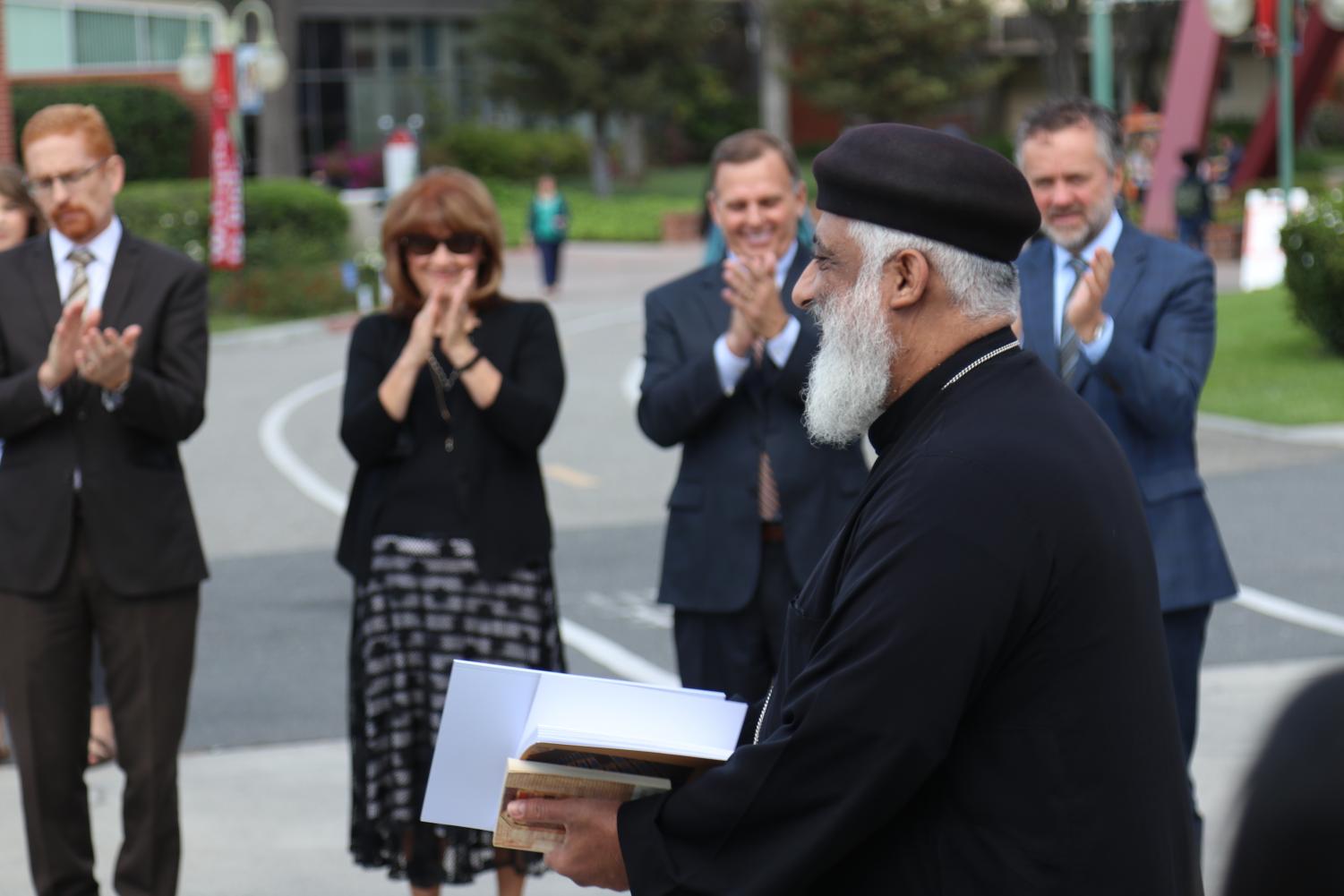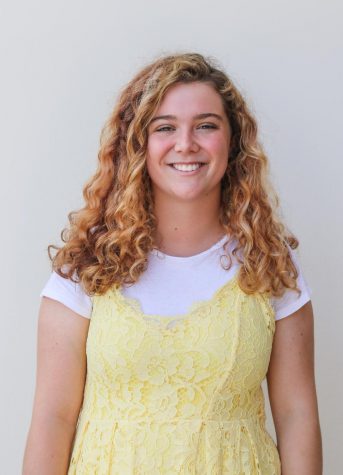Every other year, journalism students in the Media Narrative Project class work together to create a book. This year, students created “Newcomers to Neighbors,” in which they told the stories of Middle Eastern migrants, hoping to fight the stigma that comes with such designation. The book was launched on May 1 by Fluor Fountain, where students served Middle Eastern snacks, pastries and tea to their guests.
LOCAL STORIES
Among the guests was Father Joseph Boules, a Coptic Orthodox priest in Yorba Linda, whose story was incorporated into the book. He also gave a speech at the event, reading a letter of encouragement to fellow Christians. Father Boules came to the United States from Egypt in 1979 at the age of 14 in hopes of escaping discrimination against his faith.
“In that part of the world, your name gives away whether you are a Christian or a Muslim,” Boules said. “The freedom to practice religion in America is phenomenal.”
Father Boules became involved with the project after professor of journalism Michael Longinow, who teaches Media Narrative Project, was told by two of his Uber drivers to connect with the Coptic Orthodox Church. After Longinow left him a voicemail, Father Boules came to Biola and spoke to the class about his experience as a migrant.
“Hopefully by reading the book, [the readers] will be more informed,” Boules said.
BUILDING A COMMUNITY
Junior journalism major Alex Brouwer worked on the project both as a photographer and designer. Brouwer recalled the weekly meetings where students would gather and talk about how the project was going and how it was affecting them.
“[The project] opened my eyes to the necessity of engaging with other cultures,” Brouwer said.
Brouwer also stated that he hopes this book project will change Christians’ perspective toward Middle Eastern migrants.
Middle Eastern Awareness Club president Donna Eissoh also attended the book launch and stated the book’s subject matter should be discussed more often on campus. Because of the stigma that comes with being Middle Eastern, Eissoh believes even the little things that start the conversation are useful to further the understanding of Middle Eastern migrants’ stories.
“Since people don’t know much about the Middle Eastern society, I think it’s important to have this book,” Eissoh said. “Having it shared on campus with people being able to look at it, is really important.”








